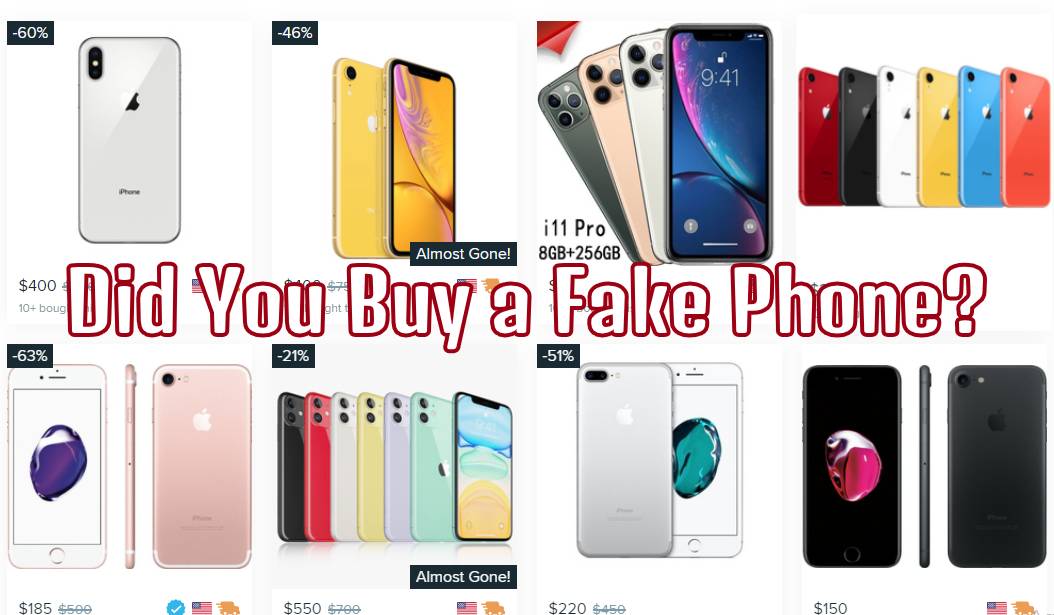
f you are on the lookout for a new iPhone while on a tight budget, please take caution. There are websites such as Wish.com that sell replicas of the devices you actually want. If you recently bought a phone online and doubt its authenticity, here’s how to tell if it is fake. If the price seems too good to be true, it probably is. Wish is currently selling an iPhone 11 Pro Max for $141. The real deal is priced at about $1,149.99. Saving a significant amount of money does not sound like an issue, but it becomes one once you consider that you are paying for the quality of your phone- or the lack thereof. Referring to the “iPhone 11 Pro Max” again, the first red flag of this product is that the description clearly states it is a duplicate. This should be enough for you to realize that you will not be receiving an authentic device in the mail. The second red flag in the description is the number of grammatical errors. No single person or company is perfect, but highly-valued and credible phone retailers such as Apple, T-Mobile, and AT&T would not publish an official description for a product with mistakes such as “you've,” “turnsyour,” or “themobile.” (Every example was pulled directly from the product description). One more red flag of this device and others alike is the “Package Includes” section. Based on the description, the replica comes with one phone, one charger, one set of headphones, one user manual, one phone case, and one protection film. Nothing sounds wrong with the bundle except the fact that authentic out-of-the-box iPhones don’t come with phone cases. Phone cases have always been a separate purchase. Honestly, besides these hiccups, the product description looks very convincing, which is why you should inspect the device’s details from the inside out. IMEI/ Model Number: If the IMEI/model number on the back of your phone does not match up with the details of your settings, your phone is probably fake. The Logo: Companies have done a great job at replicating the Apple logo on the back of phones, but you can get your answer from the welcome screen. When you first turn on an iPhone, an Apple with a loading bar beneath it appears. This feature typically does not happen with fake devices. The Camera: Just based on outer appearance, a fake iPhone camera tends to appear smaller than one on a real phone. As for the actual camera app, fake iPhones have significantly lower resolution, and many times replicas don’t offer all of the same features, such as filters and color correction. iTunes and Apple Store: Most fake iPhones do not carry these two apps. If these apps happen to be on your device and constantly have issues opening or directs you to another app, you most likely have a fake device. The list of red flags goes on and on. From the device’s weight to its charging port, screws, and Control Center features, there are many details to look out for. There is nothing wrong with wanting to save money, but if you are expecting to receive a real product, you have to browse carefully. The Price
The Product Description
The Physical Details
Fortunately, companies such as Tech Reboot sell real, high-quality devices for affordable prices. You can also sell unwanted devices to Tech Reboot in any condition and are guaranteed more money than any other buy-back company. If you are interested in purchasing or selling, please reach out to support@techreboot.co.

